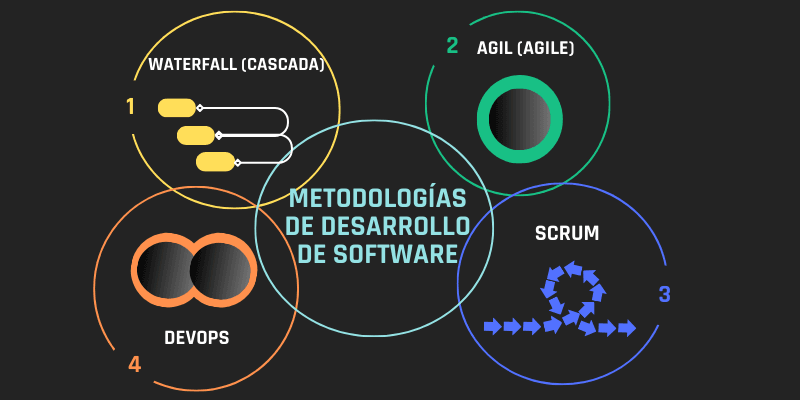
Choosing the Right Software Development Methodology for Your Project
30 Sep 2023 | By: José González
In the realm of software development, selecting the right methodology for your project is akin to choosing the perfect tool for a job. Different projects have distinct requirements, team dynamics, and timeframes, which make the choice of a development methodology critical to the project’s success.
Understanding Software Development Methodologies
Before delving into the decision-making process, let’s briefly explore a few popular software development methodologies:
1. Waterfall
- Sequential and linear approach.
- Best suited for well-defined, small-to-medium projects.
- Emphasizes detailed planning and documentation.
2. Agile
- Iterative and flexible approach.
- Ideal for projects with changing requirements and frequent feedback.
- Promotes collaboration and adaptability.
3. Scrum
- A subset of Agile, focusing on iterative cycles called “sprints.”
- Beneficial for complex projects with evolving specifications.
- Encourages teamwork and adaptability.
4. DevOps
- Emphasizes automation, collaboration, and continuous integration/continuous delivery (CI/CD).
- Suited for projects requiring rapid development and frequent releases.
- Streamlines development, testing, and deployment.
Making the Right Choice
The choice of a software development methodology should be guided by the specific needs and characteristics of your project. Here’s how to make an informed decision:
-
Project Complexity: For straightforward, well-defined projects, Waterfall may be sufficient. However, if your project’s requirements are likely to evolve, Agile or Scrum could be more suitable.
-
Team Collaboration: Consider the size and dynamics of your development team. Agile methodologies, including Scrum and DevOps, emphasize collaboration and adaptability, making them ideal for cross-functional teams.
-
Client Involvement: If your project involves clients or stakeholders who want to be actively engaged and provide regular feedback, Agile methodologies are more accommodating.
-
Risk Tolerance: Assess the level of risk associated with your project. Agile methodologies offer more flexibility for managing unexpected changes or issues.
-
Release Frequency: Determine the required release frequency. DevOps, with its continuous integration and delivery focus, is optimal for projects demanding frequent releases.
-
Documentation Needs: Consider the level of documentation your project requires. Waterfall is documentation-heavy, while Agile methodologies prioritize working software over comprehensive documentation.
Conclusion
In the world of software development, one size doesn’t fit all. The choice of a software development methodology should align with the unique characteristics of your project, team, and business goals. By carefully evaluating your project’s complexity, team dynamics, client involvement, risk tolerance, release frequency, and documentation needs, you can make an informed decision that sets your project on the path to success.
Remember that software development methodologies are not static; you can adapt and tailor them to suit your project’s evolving requirements. The key is to be flexible and open to change, ensuring that your chosen methodology aligns with your project’s objectives at every stage.
So, which methodology will you choose for your next software development project?
Subscribe



